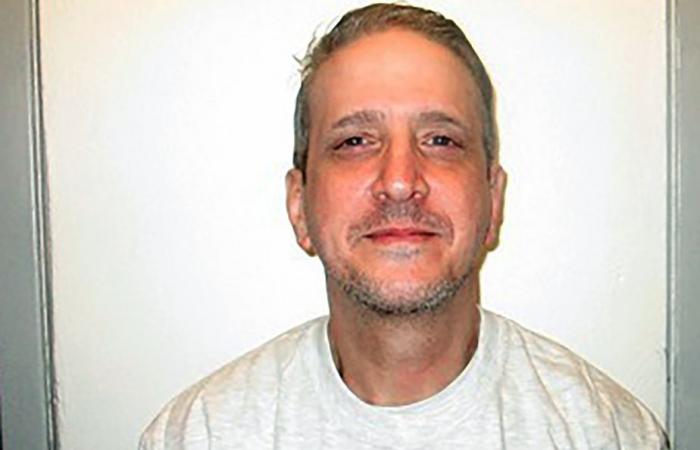
(Washington) The American Supreme Court on Wednesday questions the death sentence of Richard Glossip, for whom, exceptionally, both the prosecution and the defense are demanding a new trial.
Published yesterday at 10:51 p.m.
The Court is seized, not of the innocence claimed by Richard Glossip, 61 years old, for whom personalities like the actors Susan Sarandon and Mark Ruffalo or the billionaire Richard Branson have taken up the cause, but of respect for his right to a fair trial.
In 2015, Pope Francis sent, through his personal representative, a letter to the governor of Oklahoma, a conservative southern state, Mary Fallin, asking her to stay his then imminent execution. On nine occasions an execution date had been set for Richard Glossip, three of which were postponed after he had already eaten what was to be his “last meal”.
He was convicted in 2004 of ordering the 1997 murder of the owner of a motel he managed, Barry Van Treese, and sentenced to death. According to court documents, the victim blamed Richard Glossip for letting the establishment deteriorate and suspected him of embezzlement.
He was convicted on the basis of the highly controversial testimony of Justin Sneed, 19 at the time and addicted to methamphetamine, a motel employee who confessed to carrying out the murder with a baseball bat but escaped prosecution. death penalty by pleading guilty and incriminating him.
In prison, Justin Sneed was diagnosed with bipolar disorder and prescribed lithium to treat it. But when he testified for the prosecution at the trial of Richard Glossip, he lied on this subject, ensuring in particular that he had never consulted a psychiatrist, without the prosecutor correcting him.
On that basis, Oklahoma Attorney General Gentner Drummond, concluding that his conviction was now “no longer tenable,” jointly with the defense asked a state appeals court to overturn it and dismiss it. order a new trial.
This court having unanimously rejected this appeal in April 2023, the prosecutor and defense lawyers appealed to the Supreme Court of the United States, which stayed the execution scheduled for May of the same year then agreed in January to take action of the file.
“Extraordinary decision”
The nine judges of the Court will therefore have to decide whether the prosecutors who investigated the case violated the fundamental rights of the accused, which would lead to the annulment of the conviction and the holding of a new trial.
“Because Mr. Sneed’s credibility was likely determinative of his finding of guilt or innocence, the prosecution’s withholding of information that might have called his testimony into question and its failure to correct it deprived Mr. Glossip of a fair trial,” his lawyers write in their argument.
Attorney General Gentner Drummond, for his part, criticizes the decision of the Oklahoma Court of Appeal.
“When the prosecution takes the extraordinary step of admitting to a mistake in a criminal case, the courts have an obligation to treat this admission seriously and not to raise procedural obstacles that it has brushed aside,” he says. , “particularly in capital punishment cases”.
In the absence of a legal representative to defend the conviction of Richard Glossip, since the prosecutor opposed it, the Supreme Court had to appoint an ad hoc one, the lawyer Christopher Michel, who worked in the office of the President of the Court, John Roberts .
A curiosity noted by the legal director of the influential civil rights organization ACLU, David Cole.
“This is an exceptional case in which both the prosecution and the defense consider that this man should not be executed, and yet they must go all the way to the Supreme Court to present this appeal,” he underlines.
Lawyer Christopher Michel assures for his part that the evidence of Richard Glossip’s guilt is “convincing” and that the Supreme Court of the United States does not have jurisdiction to invalidate the final decision of the Oklahoma courts.
This story was the subject of a four-part documentary series titled “Killing Richard Glossip.”





